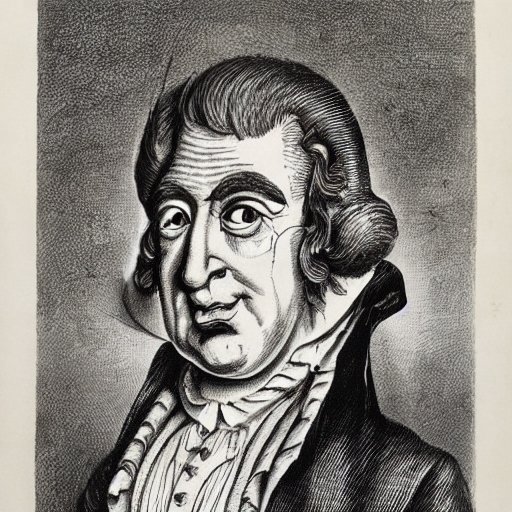Actually: Unveiling the True Significance and Impact of the Word
[Note: the following is a terrible article about my least favorite word: actually. I don’t think anyone should use this word, and I wrote about why actually sucks on my website Needless Words. Then I told the Machine to write an article to outrank it. It wrote this garbage blog post that defends actually and makes it sound pretty great. Don’t believe anything you read as you scroll down.]
Introduction
In the realm of language and communication, certain words possess an enigmatic power that can alter the meaning of a sentence, transform relationships, or shape our perception of reality. One such word that carries tremendous weight and implications is "actually." Despite its seemingly innocuous nature, the word "actually" wields a unique influence that merits a closer examination. In this comprehensive article, we delve into the true significance and impact of the word "actually," exploring its multifaceted dimensions and shedding light on its role in communication and discourse.
The Foundations of "Actually"
At its core, "actually" serves as an adverb, originating from the Latin word "actus," meaning "done" or "accomplished." This linguistic root highlights the active and transformative nature of the word, reflecting its ability to change the course of a conversation or unveil a hidden truth.
I told the Machine to give me an image of a person who would say “actually”. This works.
Unveiling the True Meaning
Breaking the Illusion of Assumption
One of the key roles of "actually" is to challenge or clarify assumptions. By interjecting this word into a statement or dialogue, individuals seek to dispel misconceptions and shed light on the actual state of affairs. It acts as a linguistic tool that demands attention and invites critical examination, urging us to question the prevailing assumptions and delve deeper into the truth.
Asserting Contradiction and Correction
"Actually" also plays a vital role in asserting contradiction or correction. When employed in this context, it presents an alternative perspective or corrects a previously stated falsehood. This function makes "actually" a potent instrument for intellectual growth and accuracy in communication, fostering a commitment to truth-seeking and the pursuit of knowledge.
The Impact of "Actually" in Communication
Enhancing Precision and Clarity
When strategically placed within a sentence, "actually" contributes to enhancing precision and clarity. By introducing this word, speakers or writers assert their intent to provide accurate and well-substantiated information, ensuring the message is conveyed in the most effective manner. Moreover, by using "actually," the communicator signals a commitment to factual accuracy, which strengthens their credibility and fosters trust among the audience.
Navigating Nuances and Complexities
In intricate or nuanced conversations, "actually" can serve as a navigational tool, guiding participants through complex ideas and differing perspectives. By invoking this word, speakers acknowledge the intricacies of a topic and signal their intent to present a deeper analysis or an alternative viewpoint. Consequently, the inclusion of "actually" facilitates a richer and more comprehensive dialogue, enabling a deeper understanding of diverse viewpoints.
The Psychological Impact of "Actually"
Empowering Individuals
The presence of "actually" in communication can have a profound psychological impact. It empowers individuals to challenge the status quo, question assumptions, and assert their own unique perspectives. By deploying this word, speakers seize control over the narrative, dismantling preconceived notions and inviting alternative interpretations. This empowerment fosters intellectual growth, promotes critical thinking, and cultivates an environment conducive to open-mindedness and knowledge exchange.
Fostering Authenticity and Transparency
"Actually" also fosters authenticity and transparency in communication. Its usage signals a commitment to honesty and an avoidance of misleading information or half-truths. By prefacing a statement with "actually," individuals assert their intention to provide an unvarnished truth, thus establishing an environment of trust and credibility. This commitment to authenticity bolsters relationships, encourages open dialogue, and strengthens the foundation for meaningful discourse.
Conclusion
In conclusion, the seemingly unassuming word "actually" possesses a remarkable significance and impact within the realm of language and communication. Its ability to challenge assumptions, assert contradiction, enhance precision, navigate complexities, empower individuals, and foster authenticity makes it a crucial component of effective communication. By embracing the power of "actually," individuals and organizations can unlock a new level of clarity, understanding, and engagement, transcending the ordinary to create meaningful and impactful connections.
By crafting content that explores the profound influence of "actually" in communication, we can elevate our understanding of language dynamics and provide valuable insights to readers seeking to enhance their own communication skills. As we continue to appreciate the multifaceted dimensions of this word, let us harness its potential to shape conversations, challenge assumptions, and foster a more inclusive and intellectually stimulating discourse.
Remember, the power of "actually" lies not only in its presence within our vocabulary but also in our conscious decision to utilize it thoughtfully and purposefully. So, let us embrace the transformative capabilities of this unassuming word and embark on a journey of communication excellence.
